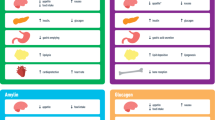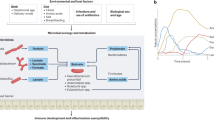Abstract
Background/objectives:
Owing to excess body weight and increased secretion of inflammatory cytokines primarily during the third trimester, pregnancy is associated with elevated insulin resistance. To our knowledge, no report is available indicating the effects of probiotic yoghurt consumption on serum insulin levels in pregnant women. This study was designed to determine the effects of daily consumption of probiotic yoghurt on insulin resistance and serum insulin levels of Iranian pregnant women.
Subjects/methods:
In this randomized controlled clinical trial, 70 primigravida pregnant women with singleton pregnancy at their third trimester were participated. We randomly assigned participants to consume 200 g per day of conventional (n=33) or the probiotic group (n=37) for 9 weeks. The probiotic yoghurt was a commercially available product prepared with the starter cultures of Streptococcus thermophilus and Lactobacillus bulgaricus, enriched with probiotic culture of two strains of lactobacilli (Lactobacillus acidophilus LA5) and bifidobacteria (Bifidobacterium animalis BB12) with a total of min 1 × 107 colony-forming units. Fasting blood samples were taken at baseline and after 9-week intervention to measure fasting plasma glucose and serum insulin levels. Homeostatic model assessment of insulin resistance (HOMA-IR) was used to calculate insulin resistance score.
Results:
Although consumption of probiotic yogurt for 9 weeks did not affect serum insulin levels and HOMA-IR score, significant differences were found comparing changes in these variables between probiotic and conventional yogurts (changes from baseline in serum insulin levels: +1.2±1.2 vs +5.0±1.1 μIU/ml, respectively, P=0.02; and in HOMA-IR score: −0.2±0.3 vs 0.7±0.2, respectively, P=0.01).
Conclusions:
It is concluded that in contrast to conventional yogurt, daily consumption of probiotic yogurt for 9 weeks maintains serum insulin levels and might help pregnant women prevent developing insulin resistance.
This is a preview of subscription content, access via your institution
Access options
Subscribe to this journal
Receive 12 print issues and online access
$259.00 per year
only $21.58 per issue
Buy this article
- Purchase on Springer Link
- Instant access to full article PDF
Prices may be subject to local taxes which are calculated during checkout
Similar content being viewed by others
Change history
04 May 2020
Editor's Note: The Co-Editors-in-Chief are currently investigating this article as concerns have been raised about integrity of the clinical trial reported here. There is also an ongoing investigation by the Iranian National Committee for Ethics in Biomedical Researches. Further editorial action will be taken as appropriate once the investigation into the concerns is complete and all parties have been given an opportunity to respond in full.
References
Hadden DR, McLaughlin C . Normal and abnormal maternal metabolism during pregnancy. Semin Fetal Neonatal Med 2009; 14: 66–71.
Johnson CA . Glucose homeostasis during canine pregnancy: Insulin resistance, ketosis, and hypoglycemia. Theriogenology 2008; 70: 1418–1423.
Lain KY, Catalano PM . Metabolic changes in pregnancy. Clin Obstet Gynecol 2007; 50: 938–948.
Catalano PM, Kirwan JP, Haugel-de Mouzon S, King J . Gestational diabetes and insulin resistance: role in short- and long-term implications for mother and fetus. J Nutr 2003; 133: 1674S–1683S.
McLachlan KA, O'Neal D, Jenkins A, Alford FP . Do adiponectin, TNFalpha, leptin and CRP relate to insulin resistance in pregnancy? Studies in women with and without gestational diabetes, during and after pregnancy. Diabetes Metab Res Rev 2006; 22: 131–138.
Lu HL, Wang HW, Wen Y, Zhang MX, Lin HH . Roles of adipocyte derived hormone adiponectin and resistin in insulin resistance of type 2 diabetes. World J Gastroenterol 2006; 12: 1747–1751.
Senn JJ, Klover PJ, Nowak IA, Mooney RA . Interleukin-6 induces cellular insulin resistance in hepatocytes. Diabetes 2002; 51: 3391–3399.
Gwozdziewiczova S, Lichnovska R, Hrebicek J . Tumor necrosis factor alfa (TNFalpha) and insulin resistance. Cesk Fysiol 2004; 53: 167–175.
Grigorakis SI, Alevizaki M, Beis C, Anastasiou E, Alevizaki CC, Souvatzoglou A . Hormonal parameters in gestational diabetes mellitus during the third trimester: high glucagon levels. Gynecol Obstet Invest 2000; 49: 106–109.
Kirwan JP, Hauguel-De Mouzon S, Lepercq J, Challier JC, Huston-Presley L et al. TNF-alpha is a predictor of insulin resistance in human pregnancy. Diabetes 2002; 51: 2207–2213.
McGarry JD . Banting lecture 2001: dysregulation of fatty acid metabolism in the etiology of type 2 diabetes. Diabetes 2002; 51: 7–18.
Ismail NA, Aris NM, Mahdy ZA, Ahmad S, Naim NM, Siraj HH et al. Gestational diabetes mellitus in primigravidae: a mild disease. Acta Medica 2011; 54: 21–24.
Seshiah V, Balaji V, Balaji MS, Paneerselvam A, Arthi T, Thamizharasi M et al. Gestational diabetes mellitus manifests in all trimesters of pregnancy. Diabetes Res Clin Pract 2007; 77: 482–484.
Cheung NW . The management of gestational diabetes. Vasc Health Risk Manag 2009; 5: 153–164.
Sunsaneevithayakul P, Kanokpongsakdi S, Sutanthavibul A, Ruangvutilert P, Boriboohirunsarn D, Keawprasit T et al. Result of ambulatory diet therapy in gestational diabetes mellitus. J Med Assoc Thai 2006; 89: 8–12.
Ferrara A, Hedderson MM, Albright CL, Feng J, Ching J, Crites Y et al. A pregnancy and postpartum lifestyle intervention in women with gestational diabetes mellitus reduces diabetes risk factors: a feasibility randomized control trial. Diabetes Care 2011; 34: 1519–1525.
Khattab S, Mohsen IA, Aboulfoutouh I, Ashmawi HS, Mohsen MN, van Wely M et al. Can metformin reduce the incidence of gestational diabetes mellitus in pregnant women with polycystic ovary syndrome? Prospective cohort study. Gynecol Endocrinol 2011; 27: 789–793.
Maymone AC, Baillargeon JP, Menard J, Ardilouze JL . Oral hypoglycemic agents for gestational diabetes mellitus? Expert Opin Drug Saf 2011; 10: 227–238.
Ma X, Hua J, Li Z . Probiotics improve high fat diet-induced hepatic steatosis and insulin resistance by increasing hepatic NKT cells. J Hepatol 2008; 49: 821–830.
Kondo S, Xiao JZ, Satoh T, Odamaki T, Takahashi S, Sugahara H et al. Antiobesity effects of Bifidobacterium breve strain B-3 supplementation in a mouse model with high-fat diet-induced obesity. Biosci Biotechnol Biochem 2010; 74: 1656–1661.
Esteve E, Ricart W, Fernandez-Real JM . Gut microbiota interactions with obesity, insulin resistance and type 2 diabetes: did gut microbiote co-evolve with insulin resistance? Curr Opin Clin Nutr Metab Care 2011; 14: 483–490.
Gupta P, Narang M, Banerjee BD, Basu S . Oxidative stress in term small for gestational age neonates born to undernourished mothers: a case control study. BMC Pediatr 2004; 4: 14.
Matthews DR, Hosker JP, Rudenski AS, Naylor BA, Treacher DF, Turner RC . Homeostasis model assessment: insulin resistance and beta-cell function from fasting plasma glucose and insulin concentrations in man. Diabetologia 1985; 28: 412–419.
Andreasen AS, Larsen N, Pedersen-Skovsgaard T, Berg RM, Møller K, Svendsen KD et al. Effects of Lactobacillus acidophilus NCFM on insulin sensitivity and the systemic inflammatory response in human subjects. Br J Nutr 2010; 104: 1831–1838.
Cani PD, Neyrinck AM, Fava F, Knauf C, Burcelin RG, Tuohy KM et al. Selective increases of bifidobacteria in gut microflora improve high-fat-diet-induced diabetes in mice through a mechanism associated with endotoxaemia. Diabetologia 2007; 50: 2374–2383.
Li Z, Yang S, Lin H, Huang J, Watkins PA, Moser AB et al. Probiotics and antibodies to TNF inhibit inflammatory activity and improve nonalcoholic fatty liver disease. Hepatology 2003; 37: 343–350.
Tabuchi M, Ozaki M, Tamura A, Yamada N, Ishida T, Hosoda M et al. Antidiabetic effect of Lactobacillus GG in streptozotocin-induced diabetic rats. Biosci Biotechnol Biochem 2003; 67: 1421–1424.
Musso G, Gambino R, Cassader M . Obesity, diabetes, and gut microbiota: the hygiene hypothesis expanded? Diabetes Care 2010; 33: 2277–2284.
Naito E, Yoshida Y, Makino K, Kounoshi Y, Kunihiro S, Takahashi R et al. Beneficial effect of oral administration of Lactobacillus casei strain Shirota on insulin resistance in diet-induced obesity mice. J Appl Microbiol 2011; 110: 650–657.
Korhonen H . Milk-derived bioactive peptides: from science to applications. J Funct Food 2009; 1: 177–187.
Donkor ON, Henriksson A, Vasiljevic T, Shah N . [alpha]-Galactosidase and proteolytic activities of selected probiotic and dairy cultures in fermented soymilk. Food Chem 2007; 104: 10–20.
Ryhanen EL, Pihlanto-Leppala A, Pahkala E . A new type of ripened, low-fat cheese with bioactive properties. Int Dairy J 2001; 11: 441–447.
Asemi Z, Jazayeri S, Najafi M, Samimi M, Mofid V, Shidfar F et al. Effects of daily consumption of probiotic yoghurt on inflammatory factors in pregnant women: a randomized controlled trial. Pak J Biol Sci 2011; 14: 476–482.
Acknowledgements
This study was supported by a grant (no.1096) from the Vice-chancellor for Research, Tehran University of Medical Sciences, Tehran, Iran. We are grateful to the Research and Development Division of Iran Dairy Industry Corporation (IDIC-Pegah) in Tehran for providing dairy products for the present study. We thank the staff of Naghavi and Shaheed Beheshti Clinics, Kashan, Iran for their assistance in this project. The study was supported by a grant (no. 1096) from the Tehran University of Medical Sciences.
Author contributions
ZA conducted the study, carried out the statistical analysis, wrote the manuscript and contributed in the interpretation of the findings. MS supervised the study and assisted in writing the manuscript. ZT supervised the study. MNR assisted in writing the manuscript. ARF collaborated in statistical analysis. AK assisted in data collection. AE advised on statistical analyses, contributed in drafting the manuscript and assisted in interpretation of the findings. All authors approved the final version of the manuscript.
Author information
Authors and Affiliations
Consortia
Corresponding author
Ethics declarations
Competing interests
The authors declare no conflict of interest.
Rights and permissions
About this article
Cite this article
ATLAS Collaboration., Asemi, Z., Samimi, M. et al. Effect of daily consumption of probiotic yoghurt on insulin resistance in pregnant women: a randomized controlled trial. Eur J Clin Nutr 67, 71–74 (2013). https://doi.org/10.1038/ejcn.2012.189
Received:
Revised:
Accepted:
Published:
Issue Date:
DOI: https://doi.org/10.1038/ejcn.2012.189
Keywords
This article is cited by
-
The genomic basis of the Streptococcus thermophilus health-promoting properties
BMC Genomics (2022)
-
Das metabolische Syndrom und Schwangerschaft
Journal für Gynäkologische Endokrinologie/Österreich (2021)
-
Improvement of glucose metabolism in pregnant women through probiotic supplementation depends on gestational diabetes status: meta-analysis
Scientific Reports (2020)
-
Effect of probiotic yoghurt on plasma glucose in overweight and obese pregnant women: a randomized controlled clinical trial
European Journal of Nutrition (2020)
-
Effect of L. acidophilus and B. lactis on blood glucose in women with gestational diabetes mellitus: a randomized placebo-controlled trial
Diabetology & Metabolic Syndrome (2019)



